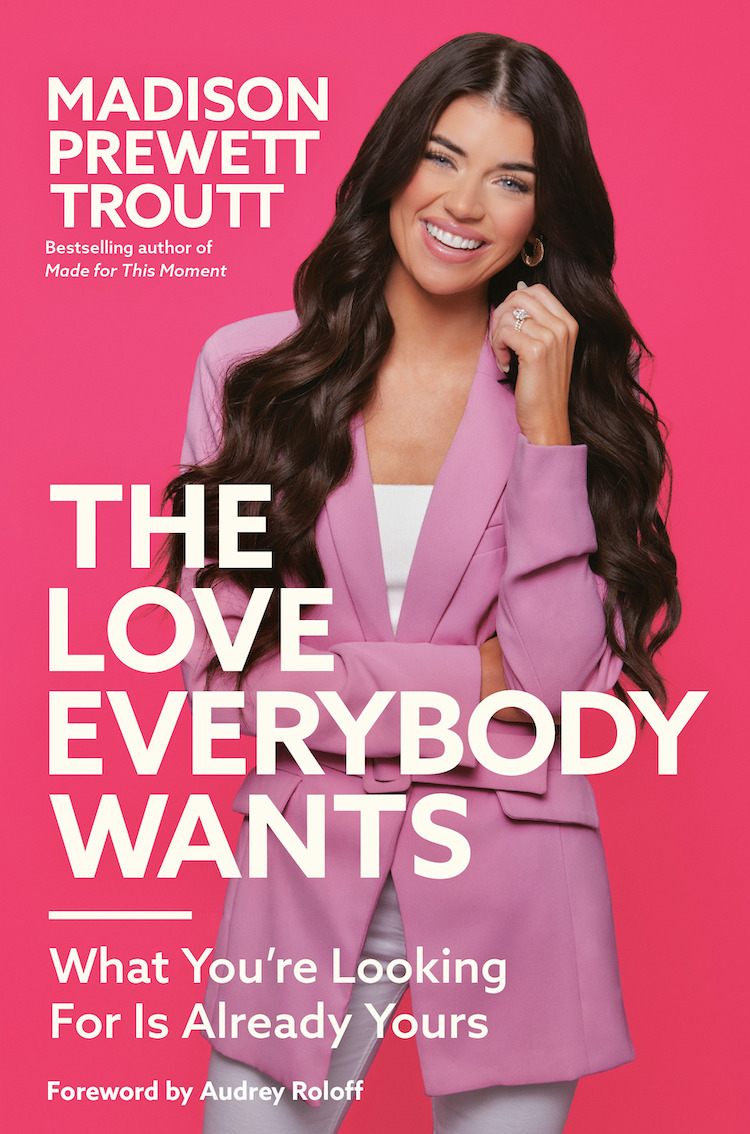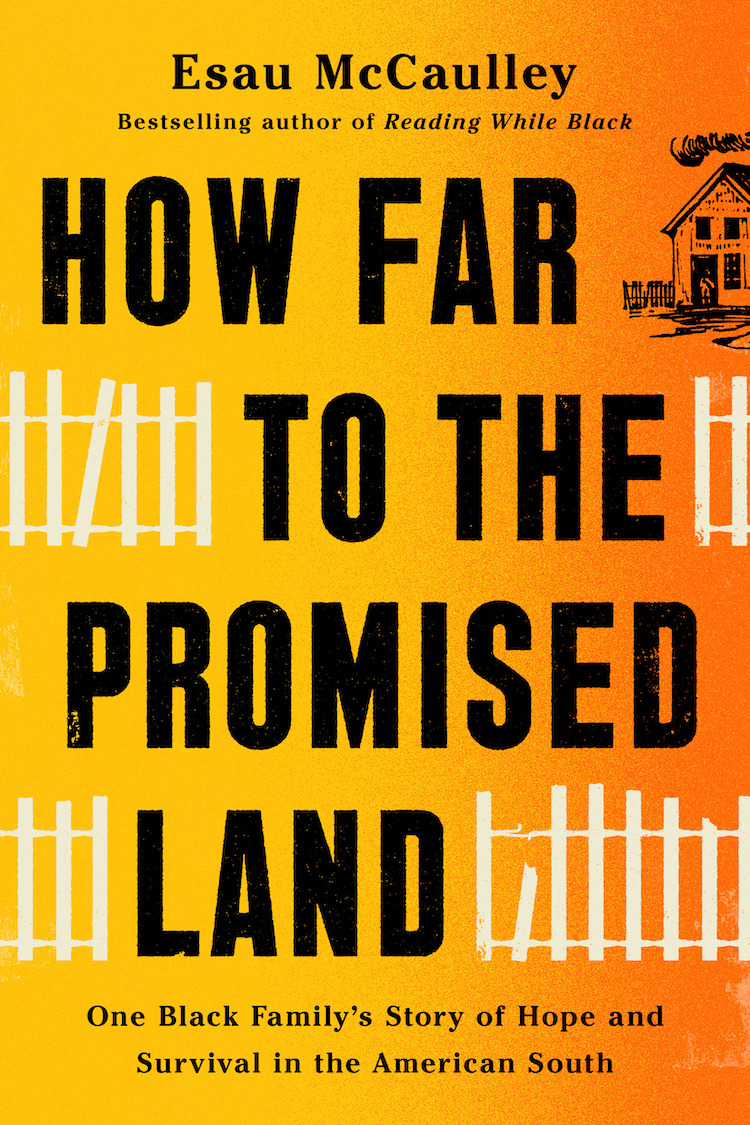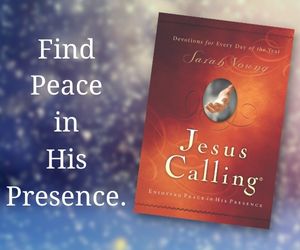When Our Most Broken Moments Reveal God’s Grace: Madison Prewett Troutt & Dr. Esau McCaulley
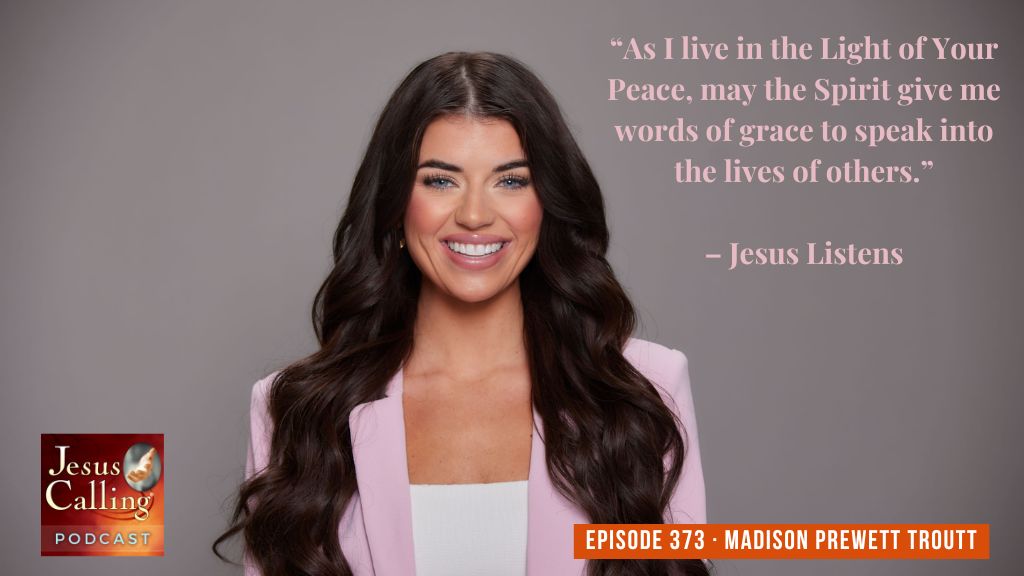
Madison Prewett Troutt: It is possible to know the love of God. And it’s possible to like yourself, maybe even love yourself, and to also navigate the matrix of relationships with confidence and with hope, and to look to your future with joy. Because every single one of us were made from love and made for love.
When Our Most Broken Moments Reveal God’s Grace: Madison Prewett Troutt & Dr. Esau McCaulley – Episode #373
Narrator: Welcome to the Jesus Calling Podcast. Making mistakes is an inherent part of our human nature, and a crucial element of our learning and growth. It is through mistakes that we come to realize our imperfections, reassess our actions, and strive for improvement. However, when we are shown grace from others amidst our shortcomings, it transcends the simple act of forgiveness. Grace is a potent demonstration of understanding and compassion, a silent acknowledgment that we are all fallible and capable of erring. It serves as a gentle reminder that mistakes do not define us, but rather, it’s how we rise from them, empowered by the grace we’ve been granted.
Madison Prewett Troutt, a former contestant from ABC’s The Bachelor who is now an author, always longed to be in a relationship. After breaking up with a person she thought might be “the one” and being thrown into the whirlwind of a reality TV show, Madison found grace through her struggle with finding love by a deeper understanding of the foundation of God’s love in her life. Dr. Esau McCaulley is a contributing opinion writer for the New York Times and an assistant professor of New Testament at Wheaton College. After learning of his estranged father’s death, Esau had to dig deep to find the words that he would use for his eulogy, which led him down a path to renewed empathy and believing that every life, no matter the mistakes made, is deserving of grace.
Let’s start with Madison’s story.
Madison: My name is Madison Prewett Troutt. Just added the ‘Troutt’ recently, got married nine months ago. But I am so excited to be coming out with my new book, The Love Everybody Wants. I am a speaker, a writer, and a social media influencer. And I am married, living in Waco, Texas, and my husband is a young adults pastor here in Waco.
Madison Dreams of What She’ll Be One Day
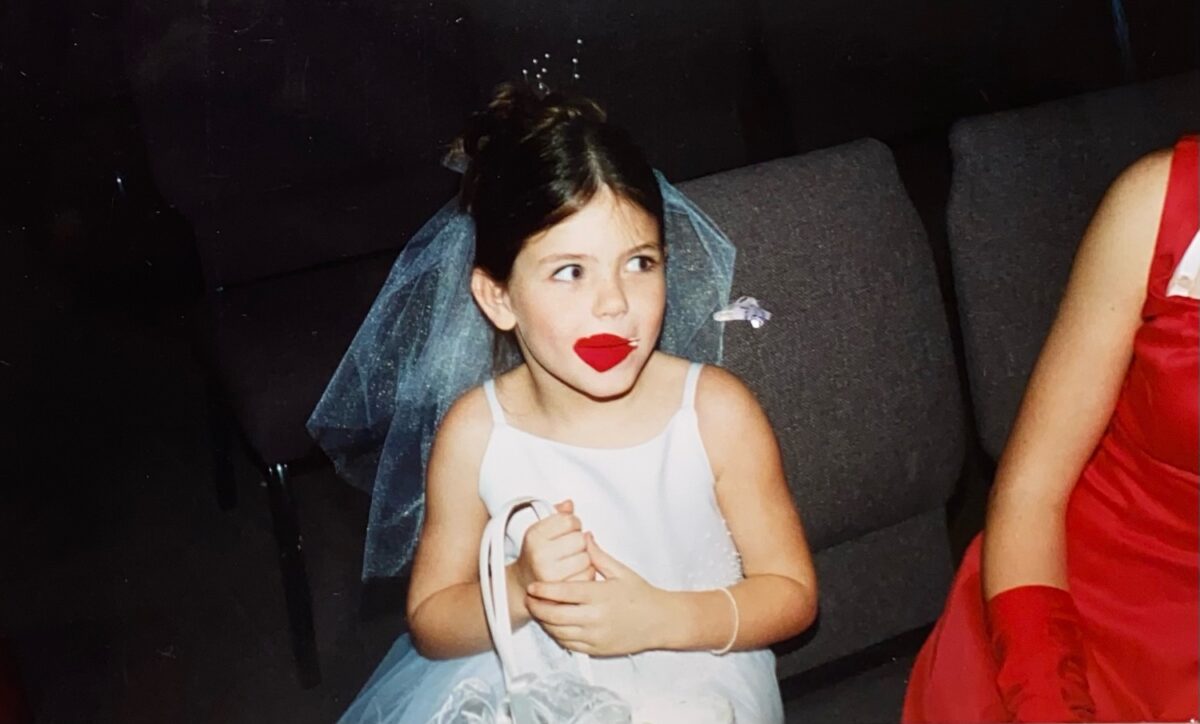
I remember when I was eight years old, my mom gave me this journal and asked me to write out my dreams and my prayers and just what I wanted my life to be one day, and I just remember I wrote down that I wanted to spend my life telling people about Jesus.
And both of my parents would speak over me that I was a world changer and that I was a dreamer. And it’s really crazy to me to look back at that little eight-year-old girl who had such high hopes and big dreams, and just think about who I am today and what God has done in my heart and through my life.
College was really when my faith started to take off and become personal, it was no longer my parents’ faith for me, it was no longer my church’s faith for me, but it was Madi’s own personal faith. And I remember in college, my mom had packed me a Jesus Calling devotional. And when I really started getting serious about my faith, like, I didn’t know where to start in the Bible. The Bible felt super overwhelming and daunting. And so I just would read a Jesus Calling devotional every single morning, and just would read it and then spend some time just reflecting on it and praying it over myself. And that has been the way I’ve been able to really connect with God on such a deep, intimate level to where now, it’s not even a question, it’s a non-negotiable.
An Unexpected Place of Growth
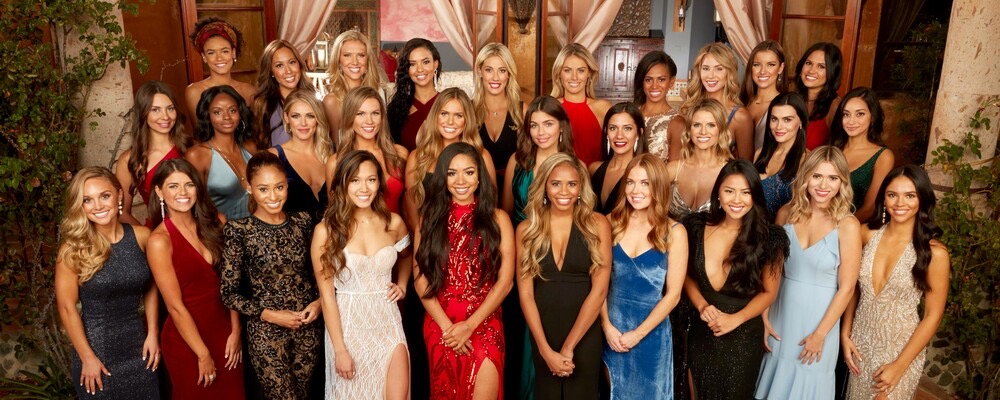
So when I went on ABC’s The Bachelor, I actually had just recently come out of a four-year relationship with someone that I thought I was going to marry. And I remember when I was in that relationship and we were kind of in this weird in-between of like, We’re either about to get engaged or we’re about to break up. And I just felt like the Lord laid on my heart that we weren’t each other’s best, like we weren’t God’s best for each other. And I just remember that being such a hard moment and realization, but I just surrendered it and I laid that relationship down.
And months later, I ended up getting a call to go on The Bachelor, and it just felt so left field. It did not feel like it made any sense for who I was and what I wanted to be and what I wanted to do with my life. I had just graduated from seminary, and wanted to spend the rest of my life telling people about Jesus, so going on a reality TV dating show did not seem to fall in line with all of that. But I just remember God gave me so much peace and I felt led to say yes to something that truly did not make sense.
But I learned so many things during that journey. I think one of the biggest things is rejection doesn’t have to be such a bad thing, that rejection can actually be God’s redirection to something better, and it can also be God’s protection to keep you from something that you just tried to settle for. And so I just would continue to encourage myself of just, “Madi, hey, if this door closes, if you don’t get a rose, if you get your heart broken, it’s still something to rejoice in and it’s still something to thank God for because He’s still in the nos, just like He’s in the yeses.”
“Rejection doesn’t have to be such a bad thing. Rejection can actually be God’s redirection to something better, and it can also be God’s protection to keep you from something that you just tried to settle for. He’s still in the nos, just like He’s in the yeses.” – Madison Prewett Troutt
Man, Jesus is truly enough. There were so many moments where I was on the show and He was all I had. I didn’t have my family to lean on. I didn’t have my friend group, I didn’t have my church service. It was just me and Jesus. And it was such a reminder that He alone satisfies, that He alone is enough. And He just really got me through that journey and just continued to give me the strength and the wisdom and everything that I needed to keep going.

And looking back now, I can see why, and I see what God did inside of me. I see what God has done and is continuing to do through me and how He’s using my life to just encourage people. And man, just what God can do with a surrendered heart and a yes is truly amazing. And so the fact that he can use somebody like me and even use something like The Bachelor to bring glory to His name just brings such comfort to my heart.
“I see what God has done and is continuing to do through me and how He’s using my life to just encourage people. And man, just what God can do with a surrendered heart and a yes is truly amazing.” – Madison Prewett Troutt
Putting Our Hope In the One Who Completes Us
I think for a long time I was trying to find this supernatural love and this lasting love in relationships with other humans. And I just so badly wanted to be married and it was hard for me to be content. And I just remember having this moment with the Lord one day, and Jesus was just like, “Madi, it’s only Me that can give you what you’re looking for, and that desire that you have for this love is great. It’s not a bad desire. You’re looking for the right thing in all the wrong places.”
And when I came off of the show and just continued in my dating life and figuring out what was next all the way up until meeting Grant, God just continued to show me like, “Madi, I am the only one that can complete you. I am the only one that can satisfy you.”
And so as I’m struggling and as I’m faced with all these doubts and frustrations and questions, I’m writing, encouraging myself, reminding myself of the truth, and just listening to what the Lord has to say as I’m wrestling with Him and as I’m struggling with Him and comparing my life to other people’s. We’re called to put our hope in a Savior because nobody else can complete us or fulfill us like Jesus can and does. It’s by the grace of God that I was really able to experience almost all the different versions of relationships in life: the waiting seasons, the heartbreaks, the rejections, the singleness.
“It’s by the grace of God that I was really able to experience almost all the different versions of relationships in life: the waiting seasons, the heartbreaks, the rejections, the singleness.” – Madison Prewett Troutt
It’s coming back to a place of not saying, “Lord, but who do you say that I am?” When we have those questions, when we feel those doubts, it’s where we go to when those come, when those lies start plaguing our minds.

My goal is to show everybody how to look to God and see ourselves and find deep love amid our culture’s shallow ideas about love and romance. Because the truth is, finding love isn’t as complicated as we’ve made it. The Bible is pretty clear about how love works. In Matthew 22:35-39, when Jesus was asked by an expert in the law, “Teacher, what is the greatest commandment?” And He responds “To love the Lord your God with all your heart, with all your soul, and with all your mind.” And then He goes on to say, “The second is like it, to love your neighbor as yourself.” And then once we get that right, and once we get that strong and healthy, all other relationships are able to be built after that and able to be strong and healthy after that.
“My goal is to show everybody how to look to God and see ourselves and find deep love amid our culture’s shallow ideas about love and romance. Because the truth is, finding love isn’t as complicated as we’ve made it.” – Madison Prewett Troutt
Reminders of Who You Are and What God Has Made You To Be

I started getting really specific with my prayers. And just a few things that helped me during that time was prayer and reminding myself that I need the Lord daily, just the simple prayer of, “Jesus, I need you,” like it doesn’t even have to be like this crazy big prayer. But prayer just for me made it less about me and my circumstances and my insecurities and turned the focus to be about Jesus and just His sovereignty and His goodness.
The next thing I would say was really encouraging to me when I was having those doubts and insecurities would just be the Word of God. The Bible is filled with so much truth, and we have this truth to combat all of the lies that we feel and that we face. And so studying, meditating, and just praying the Word of God over myself.
And then the last thing I would say is just community, you know, having people around me to just remind me of who I am and Christ and what He’s called me to do when I don’t feel it or I don’t see it.
He has been with me through every step of the way, and the joy and the peace today that I have is really nothing to do with my circumstances, but everything to do with how good God truly has been. And now I get to just do what I love doing, spend the rest of my life telling people about His goodness and His grace.
Our purpose on this earth is not in a person. Our identity is not in a relationship. When we make someone our everything, we lose everything else—our satisfaction, our longings. And even as I just prayed, like our thirst for approval, for security, for all the things, can only be found in knowing Jesus’s love and in having that love. And that’s the only way we’re going to be complete. And so I just want to encourage you from someone who has been in seasons of both lack and abundance, close to Jesus, far from Him. I have truly learned that Jesus is the only one that can satisfy.
Narrator: To learn more about Madison, please visit www.madiprew.com, and be sure to check out her new book, The Love Everybody Wants, available September 19th.
Stay tuned to Dr. Esau McCaulley’s story after a brief message.
Spreading Hope With Samaritan’s Purse
At Samaritan’s Purse, we bring spiritual and physical aid to hurting people around the world. We go into dangerous situations because in disaster and disease, in war, Jesus calls us to love our neighbor, to heal the sick, and feed the hungry, restore the broken. All who work and volunteer with Samaritan’s Purse follow the example of Jesus. We go to serve, not to be served. And we go in Jesus’ name. Join us at www.samaritanspurse.org.
Our next guest is author and associate professor of New Testament at Wheaton College, Dr. Esau McCaulley. After the loss of his absent father, and both the complex feelings and new understanding of family history that surfaced as a result, Esau learned the significance of finding grace for all people, no matter their mistakes.

Dr. Esau McCaulley: Hello, my name is Esau McCaulley. I’m an associate professor of New Testament at Wheaton College. I am a contributing opinion writer for The New York Times and author of the book How Far to the Promised Land: One Black Family’s Story of Hope and Survival in the American South.
Well, I grew up in northwest Huntsville, and everybody knows about Birmingham and the things that happened there in the civil rights movement there. But Huntsville was kind of the town that history forgot. They weren’t these huge moments of civil rights infamy in my part of Alabama, and so I kind of grew up in the shadow of the civil rights movement. And many of those stories and people involved in those narratives in my history were my heroes.
Now, as relates to my particular family, I was raised by a single mother. When we were younger, she got a brain tumor that left her unemployed and unable to work, and so we spent a lot of time kind of growing up on the rough side of Huntsville, Alabama.
Discovering Your Family’s History to Discover Yourself
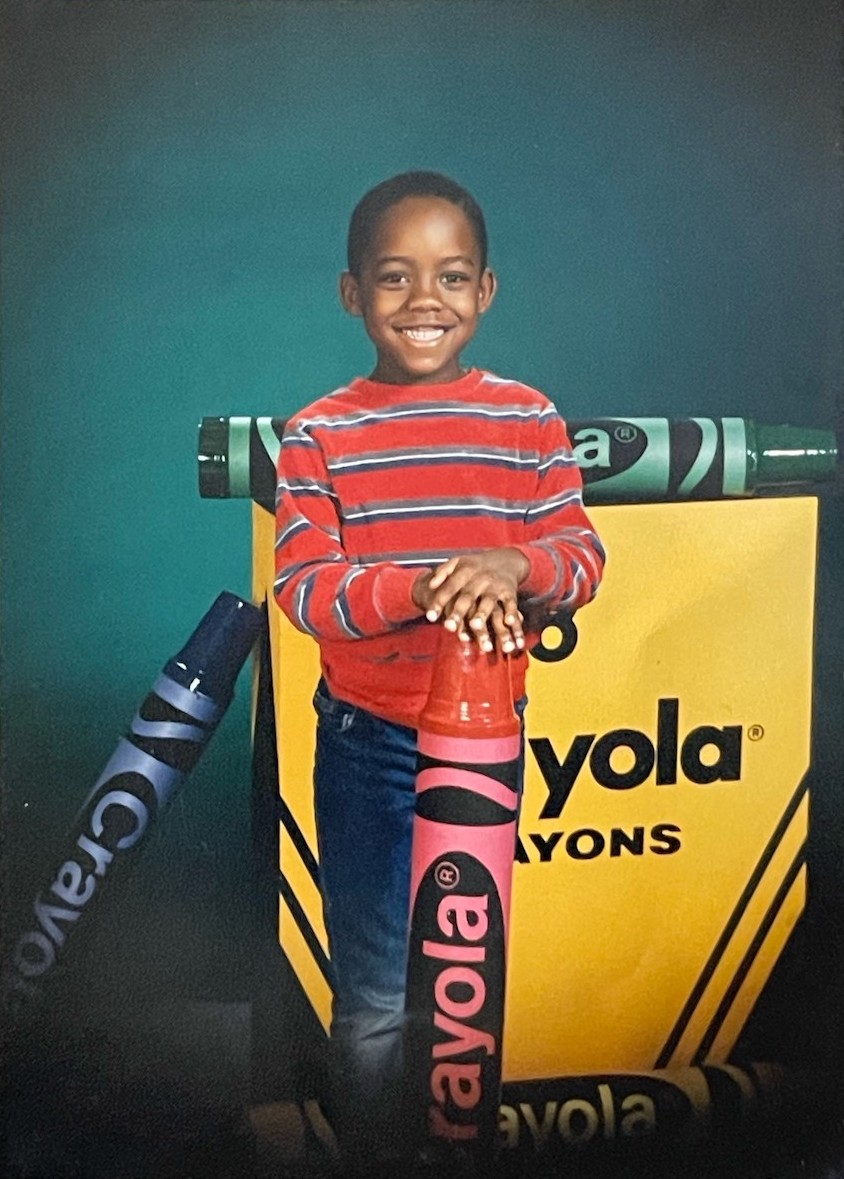
What I discovered as I dug deep into my family’s history, is that my family’s history is―in some sense—both exceptional and commonplace.
My father, my grandfather, and my grandmother on both sides of my family grew up as tenant farmers. And if anyone knows anything about tenant farming in the South during Jim Crow, you know that they were often exploited by the white landowners who would not pay them fair wages. My grandfather went to segregated schools, and when he went to segregated schools, this is one example out of many, they would shut the school down for days and weeks at a time because they had to go and work in the fields. And so my grandfather started picking cotton when he was four years old. And because they kept delaying school to have them work on the farms, even though he was a straight-A student, he was like sixteen-, seventeen-, eighteen-years old as a freshman in high school. And so you began to see the impact of the long shadow of Jim Crow, that he was not allowed to go into college. And so for this reason, he has to join the military. And so you begin to see how the long tail of racism follows my family around.
My mother was the first person in our family to go to integrated schools throughout the entirety of her life. I’m the first generation who was raised by someone who went to integrated schools. And even beyond that, my mom tells a story about how—her name’s Laurie—but there was a white girl named Laura. So the teacher said she did not want to have to remember both names, and so she called my mom by the white girl’s name for years. My mom adopted that name at the elementary school because the teacher said she didn’t want to learn the name of this black kid. And so you begin to see how all of these small stories have a cumulative impact and they influence how I live.
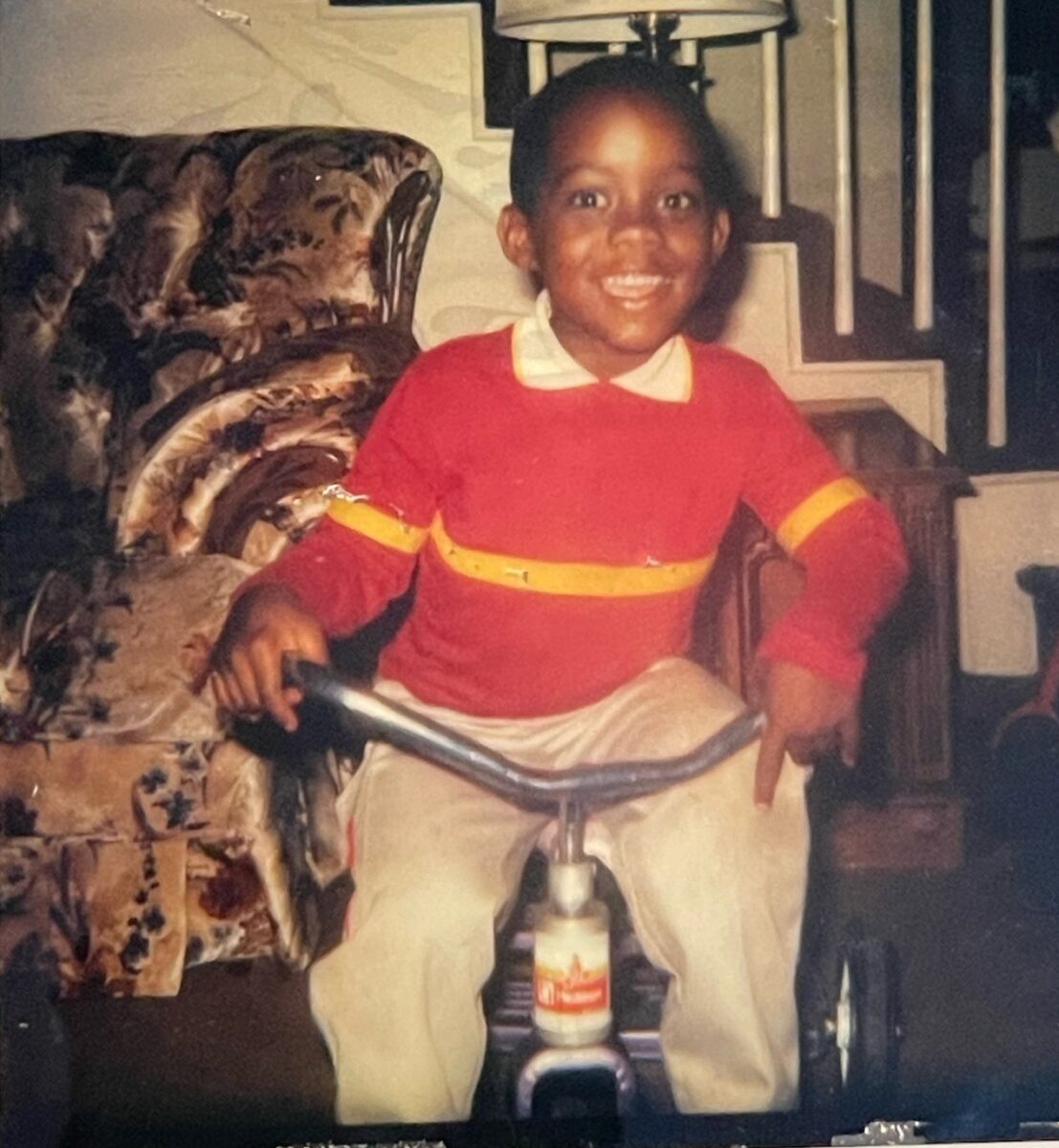
My mom always told me when I was a kid that, “When you get where you’re going, don’t forget where you came from.” And that’s true, but I think it’s more than simply remembering where you came from, it’s bringing where you came from with you, and that you bring them through the door of opportunity.
“My mom always told me when I was a kid that, ‘When you get where you’re going, don’t forget where you came from’” And that’s true, but I think it’s more than simply remembering where you came from, it’s bringing where you came from with you, and that you bring them through the door of opportunity.” – Dr. Esau McCaulley
We Can Be Known By Both Our Sins and Our Successes
I didn’t know my father growing up. He was kind of in and out of jail and in and out of our family’s life. And so I didn’t know a lot about him. We never had, for the majority of our life, any real substantial conversation or interactions that were really probing.
In 2017, I got a phone call in the middle of the night saying that my father had passed away in a single car accident. He was a truck driver in California, and we’re from, obviously, from Alabama. And after having some conversations with my family the next morning, I’m quickly asked by my mom and my sister and my brothers to do the eulogy. And one of the things that happens as a clergy person, whenever you do a eulogy of someone’s life, you kind of have a responsibility to know their story. But not just to know their story, but to kind of write an ending to their story that is both honest—you can’t lie because you’re a preacher, you’re sitting in front of a congregation. You can’t lie, but you have to tie that person’s story into the wider purposes of God.
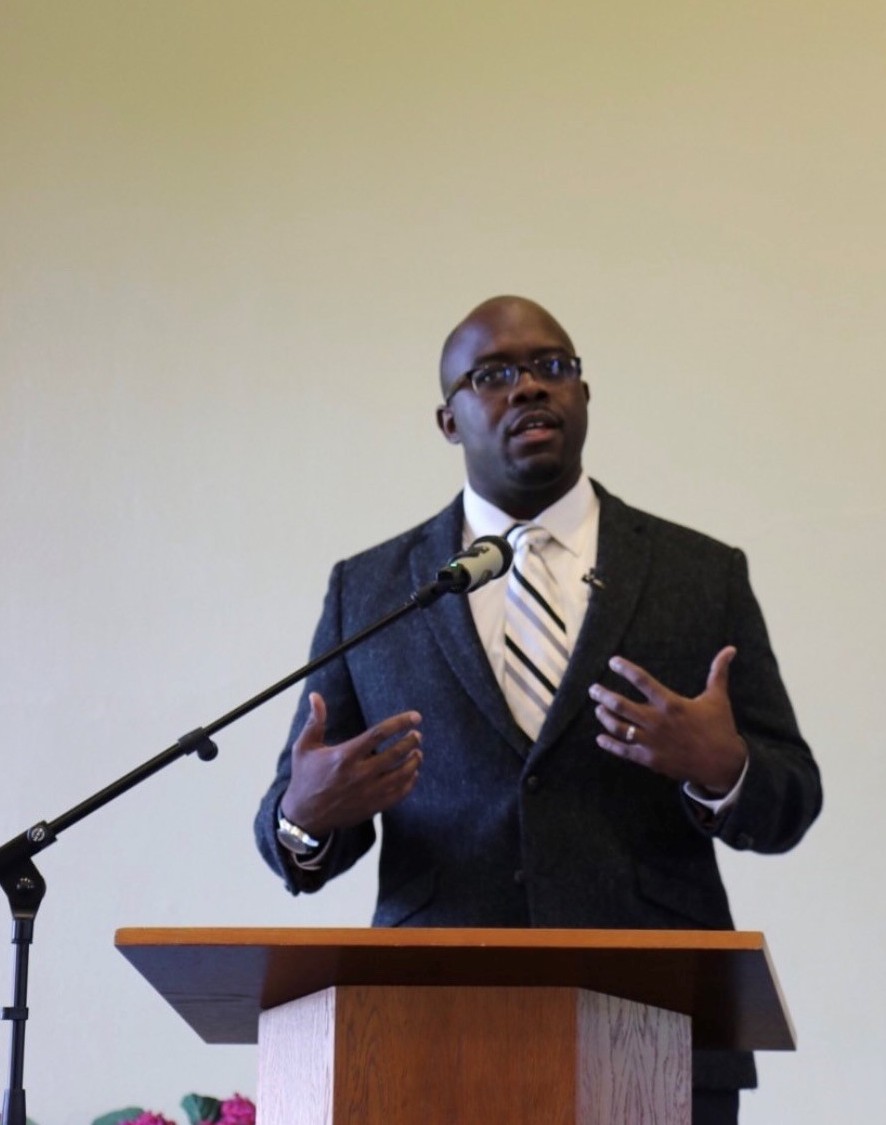
And so I’ll often sit down with the family members and say, “Well, tell me about this person and tell me what they were like.” And so I actually had to go through that process of getting to know my father through the process of preparing to deliver his eulogy. And that moment of having to see him as a person distinct from me with his own narrative, gave me the space to have some grace, because in anybody’s eulogy, there is both honesty and empathy. And when I began to see my father as a person with his own narrative and his own struggles, it gave me the courage to tell the truth. But telling the truth about my father, both his sins and his successes, gave me space to tell the truth about my past.
“When I began to see my father as a person with his own narrative and his own struggles, it gave me the courage to tell the truth. But telling the truth about my father, both his sins and his successes, gave me space to tell the truth about my past.” – Dr. Esau McCaulley
It’s very easy when someone abandons you as a child, that you treat them simply as villains, these people who ruin your life by the decisions that they make. But when you get older, you realize that you kind of enter your parents’ story in the middle of things. They had a past before you that kind of shapes who they were and what they became. And so understanding my father involved also coming to understand his past and his path through life, and that gave me some space, some room to have some empathy. As a Christian pastor, I believe that nobody’s story is over until it’s over. And the same grace that I extended to people in my congregation, I needed to extend to my own father.
Every Single Life Has the Chance to Become Beautiful
We cannot know someone’s life by the point where we encounter them. We have no idea what God might have for them in their future. And so empathy means, “I want to give you enough space to find yourself.”
Even if someone is poor because of the mistakes that they made, does that mean that they don’t deserve our empathy? And so I think that if you’re a Christian, a person of faith, and you believe that every single life is sacred, then there are no lives that you can throw away.
I’m a Christian, I must be convinced that it is possible for any human life to change. What really breaks my heart is someone dies, and we assess their lives, and we say, “Because this person was an addict, because this person was arrested fifteen times, their life was clearly not going to be anything.” And I say, “How can that possibly be the way that you think about a person if you believe in a God who raises the dead?” If God raises the dead, any person’s life at any point can change dramatically. Every single life, as long as it’s still going on, has a chance to become something beautiful.
“If God raises the dead, any person’s life at any point can change dramatically. Every single life, as long as it’s still going on, has a chance to become something beautiful.” – Dr. Esau McCaulley
My own struggle has taught me that providence is a determining factor in my life, that it is not simply about talent. And that the American story that the talented people are the ones who survive simply isn’t true. I know people who are just as talented and just as gifted as I was, but who didn’t experience the ways that we define success. And so I began to see my story as a stewardship, something that doesn’t belong to me, but it belongs to my community. And that any time I’m in front of a microphone, my job is not to tell my story, but to tell our story.
I think we owe each other attention. This may seem to be like a relatively small request, but before you can actually help someone, you have to actually get to see them. You know, one of the things that you learn to do when you live in a big city is you see the homeless and you learn to do that dead thousand mile stare so that you don’t engage them visually. So then once you engage them visually, it kind of invites them into your life. The first thing we have to do is to see the people around us, to see the entirety of the thing. Though we see it, we need to let what we see change us.
“I think we owe each other attention. This may seem to be like a relatively small request, but before you can actually help someone, you have to actually get to see them. We need to let what we see change us.” – Dr. Esau McCaulley
Every single human life matters in that they struggle to make sense of that life and that struggle to find themselves and to find God. Each one of those stories is beautiful, and the truth is we tend to only listen to the stories that end with our definition of success.
God never abandons His people. And that’s the good news. The good news is that we don’t have to get it right, but that God gets it right. And if we trust Him, we’ll find a way home in the end.
“God never abandons His people. The good news is that we don’t have to get it right, but that God gets it right. And if we trust Him, we’ll find a way home in the end.” – Dr. Esau McCaulley
Jesus Listens, April 19th:
All-knowing God,
You have searched me and known me. You understand my thoughts from afar, and You are intimately acquainted with all my ways. How thankful I am to be fully known by You! Everything about me is visible to You—including my most secret thoughts and feelings. This transparency would terrify me if I were not Your beloved child. But I have nothing to fear because Your perfect righteousness has been credited to me through my faith in You. I’m so grateful to be a permanent member of Your royal family!
In Your royal Name, Jesus,
Amen
Narrator: To learn more about Dr. Esau McCaulley, check out his new book, How Far to the Promised Land, at your favorite retailer.
If you’d like to hear more about what our broken stories can teach us, check out music artist Matthew West’s story on Jesus Calling’s YouTube channel, as part of our Peace For Everyday Life series.
Next week: Julie Chen Moonves
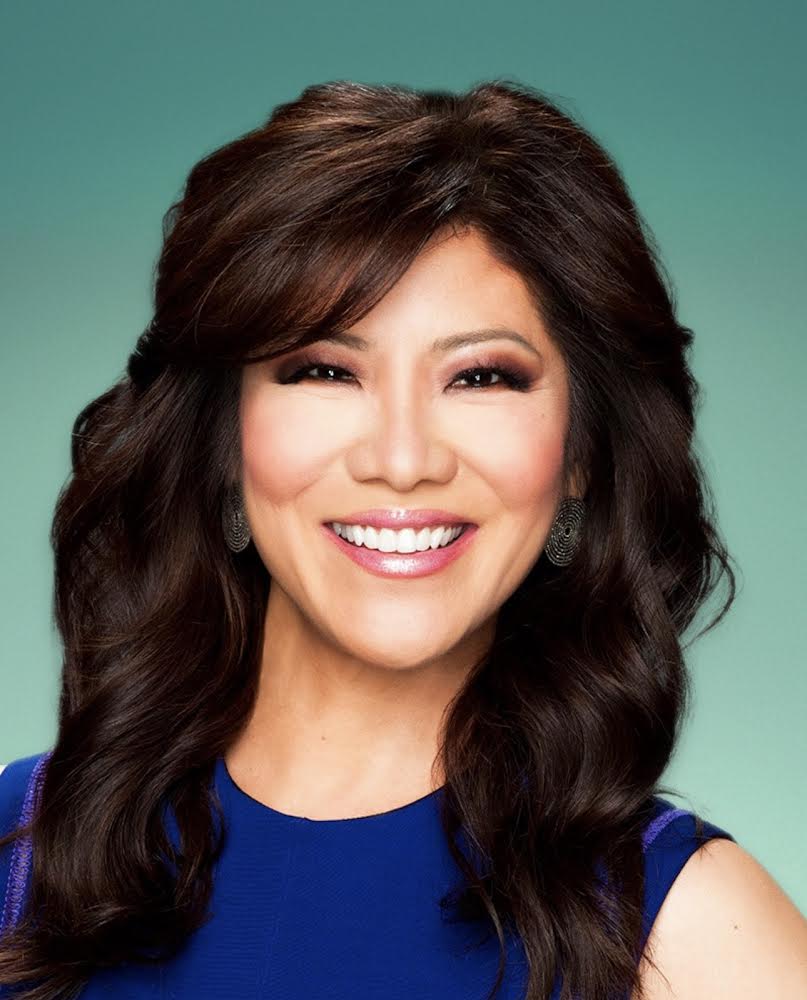
Next time on the Jesus Calling Podcast, we’ll hear from the host of Big Brother, Julie Chen Moonves. Julie shares how she spent years prioritizing her job until she found herself lonely, and feeling empty. That’s when she turned to God for answers.
Julie Chen Moonves: Now that I have a personal relationship with Jesus, every relationship in my life has changed. I don’t fly off the handle. I don’t get so emotional. I’m more mature as a human being and as a mom. And I have this peace in my life that I never even knew could exist.
